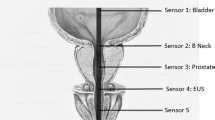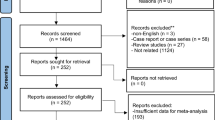Abstract
Anejaculation is a rare cause of infertility and adversely affects the general sense of well-being and perception of sexual life satisfaction. Evidence to support effective and noninvasive treatment for this ejaculatory disorder is lacking. This study aimed to evaluate the efficacy and safety of midodrine (α1-adrenergic receptor agonist) for the treatment of organic anejaculation but not spinal cord injury (SCI). A total of 128 patients were randomly assigned to oral midodrine 7.5–15 mg per day in a stepwise approach (group 1, n=64), or a similar regimen of placebo (group 2, n=64). They underwent a complete physical examination, echocardiography, 12-lead electrocardiogram, transrectal ultrasonography, complete blood count and blood chemistry. Hormonal assays included serum levels of luteinizing hormone, follicle-stimulating hormone, prolactin and testosterone. To rule out other sexual dysfunction, patients also completed the International Index of Erectile Function questionnaire. Psychiatric disorders were excluded by appropriate tests. Outcome measure was reversal of the anejaculation. None of the patients in the placebo group achieved antegrade or retrograde ejaculation. At the end of study, antegrade, retrograde and antegrade+retrograde ejaculation occurred in 18 (29.5%), 8 (13.1%) and 9 (14.8%) patients in midodrine group, respectively (all P=0.01). The most and least favorable responses were among patients with multiple sclerosis and bilateral sympathectomy, respectively. Midodrine improved ejaculation function in a dose-dependent manner. Four participants (6.3%) in midodrine group discontinued this study for reasons of adverse events. In patients with organic anejaculation but without SCI midodrine can reverse anejaculation in more than 50% of patients. Further studies are needed, however, for the evaluation of different treatment regimens in anejaculation therapy.
This is a preview of subscription content, access via your institution
Access options
Subscribe to this journal
Receive 8 print issues and online access
$259.00 per year
only $32.38 per issue
Buy this article
- Purchase on Springer Link
- Instant access to full article PDF
Prices may be subject to local taxes which are calculated during checkout





Similar content being viewed by others
References
Jannini EA, Simonelli C, Lenzi A . Sexological approach to ejaculatory dysfunction. Int J Androl 2002; 25: 317–323.
Ralph DJ, Wylie KR . Ejaculatory disorders and sexual function. BJU Int 2005; 95: 1181–1186.
McMahon CG, Abdo C, Incrocci L, Perelman M, Rowland D, Waldinger M et al. Disorders of orgasm and ejaculation in men. J Sex Med 2004; 1: 58–65.
Qiu Y, Wang SM, Yang DT, Wang LG . Percutaneous vasal sperm aspiration and intrauterine insemination for infertile males with anejaculation. Fertil Steril 2003; 79: 618–620.
Kamischke A, Nieschlag E . Update on medical treatment of ejaculatory disorders. Int J Androl 2002; 25: 333–344.
McClellan KJ, Wiseman LR, Wilde MI . Midodrine. A review of-its therapeutic use in the management of orthostatic hypotension. Drugs Aging 1998; I 2: 76–86.
Mukand J, Karlin L, Barrs K, Lublin P . Midodrine for the management of orthostatic hypotension in patients with spinal cord injury: a case report. Arch Phys Med Rehabil 2001; 82: 694–696.
Lamarre-Cliche M, Souich P, Champlain J, Larochelle P . Pharmacokinetic and pharmacodynamic effects of midodrine on blood pressure, the autonomic nervous system, and plasma natriuretic peptides: a prospective, randomized, single-blind, two-period, crossover, placebo-controlled study. Clin Ther 2008; 30: 1629–1638.
Soler JM, Previnaire JG, Plante P, Denys P, Chartier-Kastler E . Midodrine improves ejaculation in spinal cord injured men. J Urol 2007; 178: 2082–2086.
Courtois FJ, Charvier KF, Leriche A, Vézina JG, Côté M, Bélanger M . Blood pressure changes during sexual stimulation, ejaculation and midodrine treatment in men with spinal cord injury. BJU Int 2008; 101: 331–337.
Rosen RC, Riley A, Wagner G, Osterloh IH, Kirkpatrick J, Mishra A . The International Index of Erectile Function (IIEF): a multidimensional scale for assessment of erectile dysfunction. Urology 1997; 49: 822–830.
Bernstein-Carlson E, Putnam FW . An update on the Disssociative Experiences Scale. Dissociation 1993; 6: 16–27.
Hamilton M . A rating scale for depression. J Neurol Neurosurg Psychiatry 1960; 23: 56–61.
Hamilton M . The assessment of anxiety states by rating. Br J Med Psychol 1959; 32: 50–55.
Heimberg RG, Horner KJ, Juster HR, Schneier FR, Liebowitz MR . Psychometric properties of the Liebowitz Social Anxiety Scale. Psychol Med 1999; 29: 199–212.
Schatte EC, Orejuela FJ, Lipshultz LI, Kim ED, Lamb DJ . Treatment of infertility due to anejaculation in the male with electroejaculation and intracytoplasmic sperm injection. J Urol 2000; 163: 1717–1720.
Kamischke A, Nieschlag E . Treatment of retrograde ejaculation and anejaculation. Hum Reprod Update 1999; 5: 448–474.
Kaufmann H, Saadia D, Voustianiouk A . Midodrine in neurally mediated syncope: a double-blind, randomized, crossover study. Ann Neurol 2002; 52: 342–345.
Vale J . Ejaculatory dysfunction. BJU Int 1999; 83: 557–563.
Acknowledgements
I thank Shiva Safarinejad for critical reading of the paper. I thank Nayyer Shafiei for her professional and technical assistance during the study.
Author information
Authors and Affiliations
Corresponding author
Rights and permissions
About this article
Cite this article
Safarinejad, M. Midodrine for the treatment of organic anejaculation but not spinal cord injury: a prospective randomized placebo-controlled double-blind clinical study. Int J Impot Res 21, 213–220 (2009). https://doi.org/10.1038/ijir.2009.19
Received:
Revised:
Accepted:
Published:
Issue Date:
DOI: https://doi.org/10.1038/ijir.2009.19
Keywords
This article is cited by
-
An exploration of testicular cancer survivors’ experience of ejaculatory dysfunction following retroperitoneal lymph node dissection—a sub-study of the PREPARE clinical trial
Journal of Cancer Survivorship (2023)
-
Sexual Health in the Neurogenic Patient
Current Bladder Dysfunction Reports (2020)
-
Sexual dysfunction and male infertility
Nature Reviews Urology (2018)



